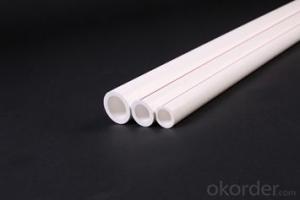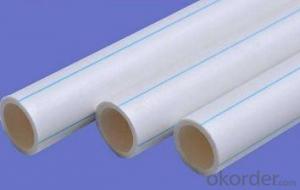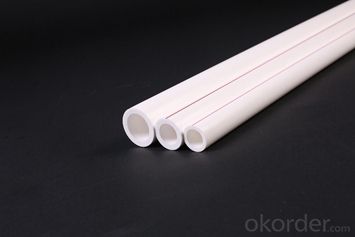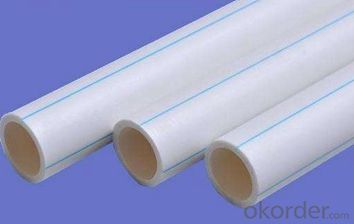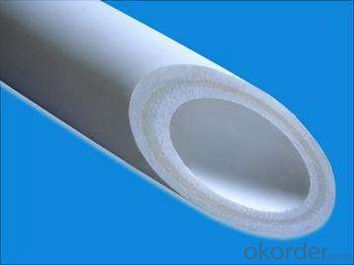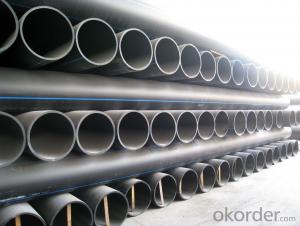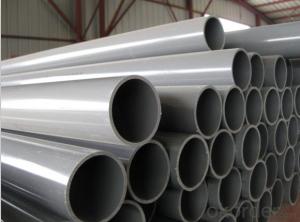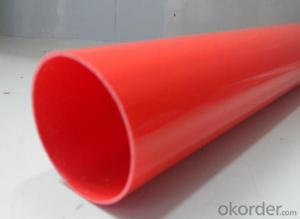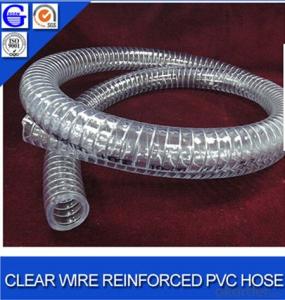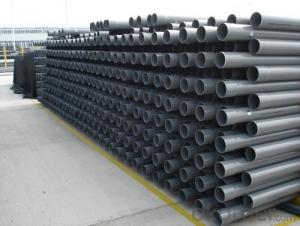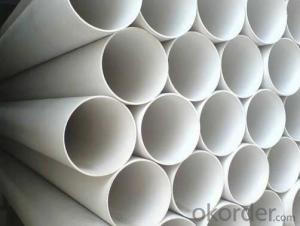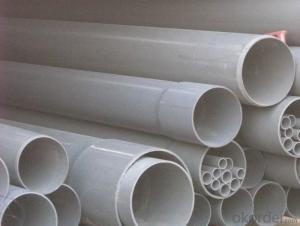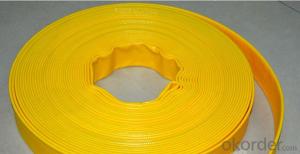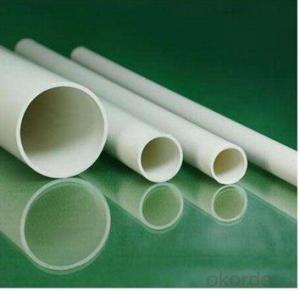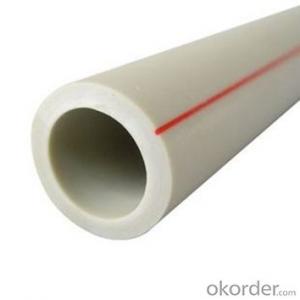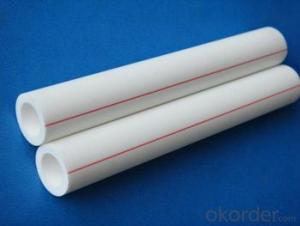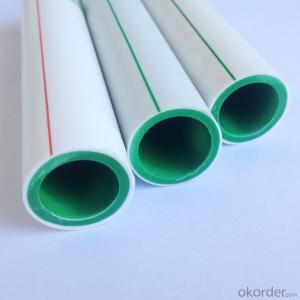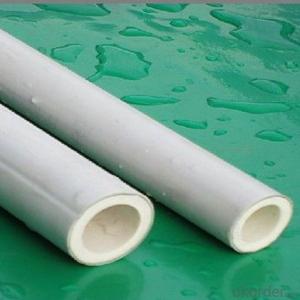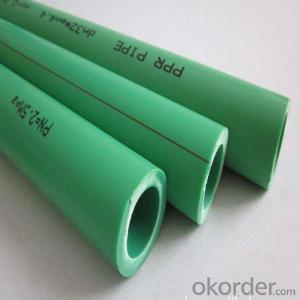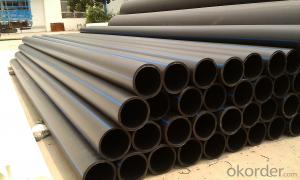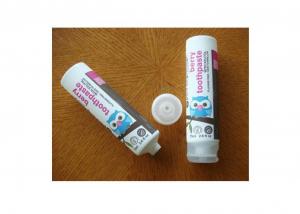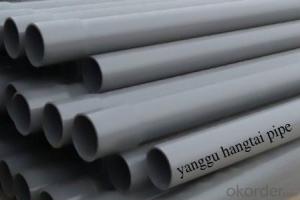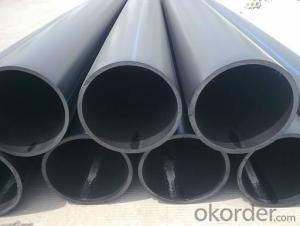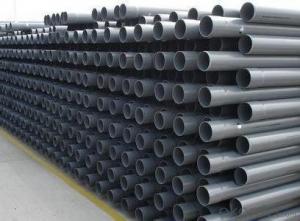Plastic Tubes - PPR Pipe for Industrial and Agricultural Fields from China
- Loading Port:
- Dalian
- Payment Terms:
- TT OR LC
- Min Order Qty:
- 1000 pc
- Supply Capability:
- 1000000 pc/month
OKorder Service Pledge
OKorder Financial Service
You Might Also Like
Product Overview
Place of Origin: Henan, China (Mainland)
Model Number: PE100
Material: PE
Specification: DN 20-mm~DN1200mm
Length: According to customer requirement
Thickness:SDR11/13.6/17
Standard: ISO
Color: many colors
Product name: Plastic Pipe
Application: house and garden
Usage: Family Decoration Industry
Certification: ISO Certificate
Feature: Lightweight
Size: Customized Size
Type: Round Pipe
Name: HDPE Plastic Pipe
Connection: Butt Fusion
Product Description
1.Material : | PPR |
2.Color: | White, Gray, Green, or as you required. |
3.Size: | 20-110mm |
4.Logo: | CMAX or Customized |
5.MOQ | 500pcs |
6.Samples Time: | (1) 4-5days-If you want to customize your logo. |
(2) 1day-For our existing samples for reference. | |
7.OEM Accepted | Yes |
8.Certification available: | Yes |
9.Packing Details: | Weaving Bag |
10.Production Capacity: | 5,000,000pcs Per month. |
11.Payment Term: | (1) L/C,T/T,D/P |
Product Show
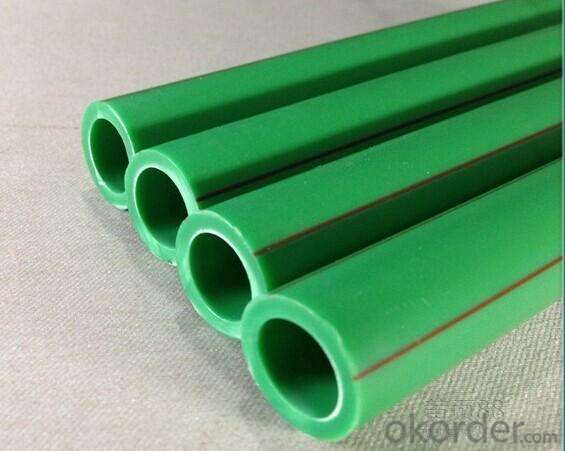
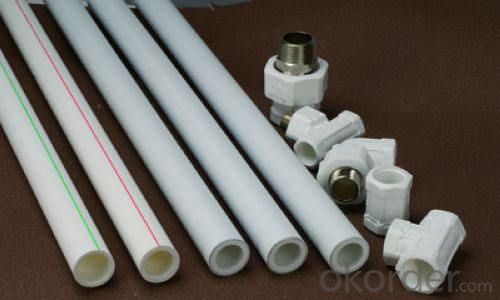
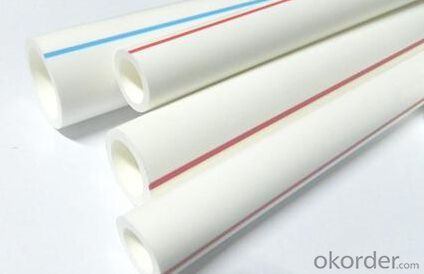
FAQ
Q: If the products have some quality problem ,how will you deal with it?
A: If the quality problem caused by us, we will provide a replacement service,and we must keep in mind. Take measures to control quality strictly,we adhere to the principle: “ quality first”.
Q.How can I get a sample?
A: FREE SAMPLE can be sent to you .Freight will be collect
Q. Is free design assistance available for clients?
A: If you have problems in designing or beautifying the customized product, we will offer you the best design assistance.Pictures
Q:, Which factors can be customized?
A: Material, Color, Size, Packing ,Brand, delivery
Q; Advantages of your products?
A:Company products, good quality, high reputation guarantee
Our Services
Pre-Sales Service
1. Inquiry and consulting support.
2. Sample testing support.
After-Sales Service
1. Training how to instal the machine, training how to use the machine.
2. Engineers available to service machinery overseas.
- Q: Do plastic tubes require any special handling or storage?
- Yes, plastic tubes typically require special handling and storage. They should be stored in a cool, dry place away from direct sunlight and extreme temperatures. Additionally, they should be handled with care to avoid punctures or damage, as this could compromise their integrity and functionality.
- Q: i connected a plastic tube about 7 or 8 inchs long onto a butane can im wondering if when i push down on the can and put a match near it can the fire go back into the can explode
- Yes it will unless you have a regulator between the valve and the tube
- Q: What sensors can be used to measure changes in the water level in a transparent plastic pipe?
- The patient does not need transfusion to quantitatively measure the water level, only need to point measurement, so we can use the photoelectric sensor (a transmitting tube and a receiving tube), because of the refraction of water and air rate is not the same, and the infusion tube is cylindrical, equal to a lens, so that can detect changes in water and water, to remind the nurse.
- Q: What are the common sizes of plastic tubes used for bottling?
- The common sizes of plastic tubes used for bottling vary, but some of the most commonly used sizes include 1.5 oz, 2 oz, 4 oz, 8 oz, and 16 oz.
- Q: Has anyone tried to get inside those plastic balloons that come in the tubes?
- surrrrre wtf are you talking about?
- Q: Can plastic tubes be used for chemical transfer?
- Yes, plastic tubes can be used for chemical transfer. Plastic tubes made from chemically-resistant materials such as polypropylene, polyethylene, or PTFE (Teflon) can safely transport various chemicals without undergoing degradation or contamination. These tubes are often preferred for their cost-effectiveness, versatility, and ease of use in various industries including pharmaceutical, laboratory, and manufacturing. However, it is important to select the appropriate plastic material based on the specific chemicals being transferred to ensure compatibility and prevent any adverse reactions.
- Q: Can plastic tubes be used for irrigation systems?
- Yes, plastic tubes can be used for irrigation systems. They are commonly used due to their durability, flexibility, and resistance to corrosion. Plastic tubes are cost-effective and easy to install, making them a popular choice for various irrigation applications.
- Q: What is the maximum pressure that plastic tubes can handle?
- The maximum pressure that plastic tubes can handle varies depending on the type of plastic used and the specific design and thickness of the tube. Generally, plastic tubes can handle pressures ranging from a few hundred psi (pounds per square inch) to several thousand psi. It is important to consult the manufacturer's specifications and guidelines to determine the maximum pressure rating for a particular plastic tube.
- Q: Can plastic tubes be used for marine applications?
- Yes, plastic tubes can be used for marine applications. Plastic tubes, such as those made from PVC or polyethylene, are commonly used in various marine applications such as plumbing, irrigation, bilge pumping, and water circulation systems. These tubes are resistant to corrosion, have good durability, and can withstand harsh marine environments, making them suitable for use in boats, ships, and other marine structures.
- Q: How do you label plastic tubes?
- Plastic tubes can be labeled using various methods such as adhesive labels, heat shrink sleeves, direct printing, or using markers and tape. The choice of labeling method depends on the type of plastic, intended use, and desired durability of the label.
Send your message to us
Plastic Tubes - PPR Pipe for Industrial and Agricultural Fields from China
- Loading Port:
- Dalian
- Payment Terms:
- TT OR LC
- Min Order Qty:
- 1000 pc
- Supply Capability:
- 1000000 pc/month
OKorder Service Pledge
OKorder Financial Service
Similar products
Hot products
Hot Searches
Related keywords
